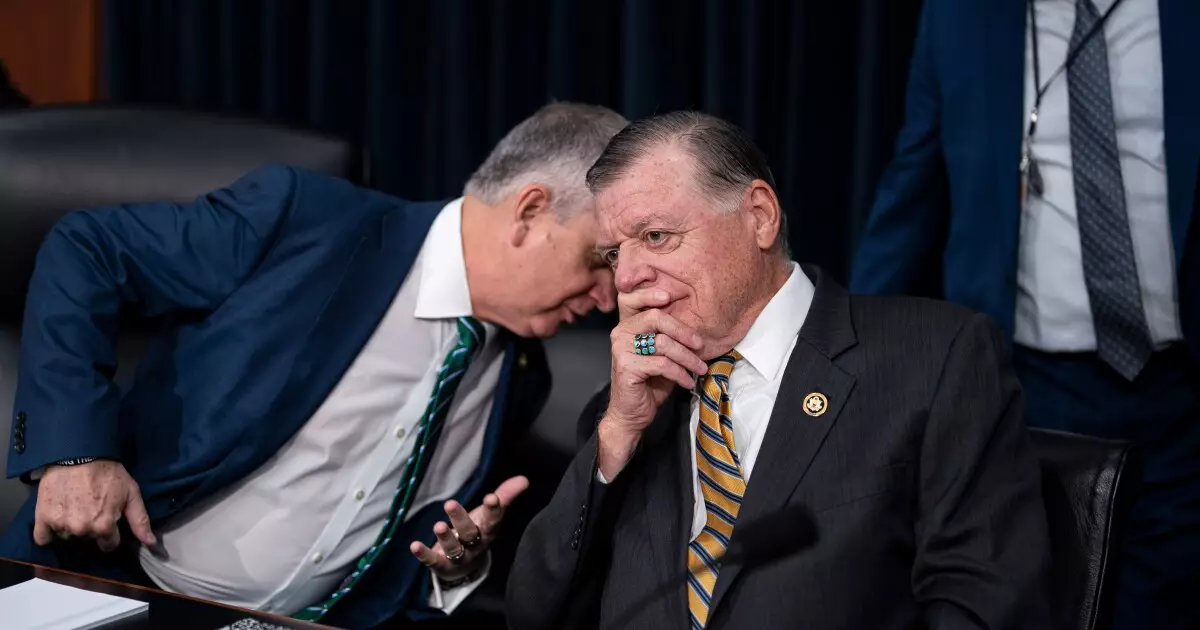As Congress reconvenes for its final stretch of the 118th session, legislators will confront a whirlwind of pressing issues that demand immediate attention. With a government funding bill and national defense reauthorization on the agenda, the time sensitivity of these discussions cannot be understated. Set to conclude on December 20, this lame-duck session is a critical juncture for lawmakers, primarily focusing on essential legislation that averted previous funding lapses.
The current continuing resolution is set to expire on December 20, compelling Congress to act swiftly. A failure to secure an extension could lead to a government shutdown, underscoring the political stakes involved. As Brett Bolton, a key player at the Bond Dealers of America, pointed out, the manner in which Congress navigates this legislative bottleneck will speak volumes about its priorities not just for the remainder of 2023, but for the fiscal trajectory into 2025.
One of the most formidable challenges lawmakers face is reaching consensus on spending levels. House Speaker Mike Johnson, a Republican from Louisiana, has indicated a preference for a short-term funding extension that could push negotiations well into 2025. This would allow for President-elect Donald Trump to exert influence over fiscal planning. Such a strategy indicates a broader intent to recalibrate spending priorities under the incoming administration, placing substantial pressure on their Democratic counterparts.
The anticipated cuts proposed by the incoming administration highlight a stark ideological divide regarding fiscal responsibility and government efficiency. Lawmakers are aware that they must finalize a complete budget by April 2024; otherwise, they risk triggering automatic spending cuts through sequestration, a scenario that many legislators are eager to avoid.
Bipartisan Support for Disaster Aid
In a notable sign of cooperation, bipartisan support has emerged regarding the necessity of disaster relief funding. Following a recent appropriations committee hearing, lawmakers from both sides of the aisle echoed the need for a robust disaster funding initiative before the year’s end. Not only is this an ethically necessary move to assist regions grappling with natural calamities, but it is also politically advantageous, potentially providing a moment for unity amidst a deeply polarized environment.
House Appropriations Chair Tom Cole has elaborated that including disaster aid within the stop-gap funding bill will likely enhance its viability. This situation illustrates how urgent circumstances can sometimes transcend typical partisan divides, creating opportunities for consensus.
Another pivotal item on Congress’s agenda is the National Defense Authorization Act (NDAA). Maintaining a track record of annual passage for over sixty years, the NDAA is vital for national security. This year, however, it is not expected to contain major reforms or changes akin to previous iterations, such as the inclusion of the Financial Data Transparency Act in 2022. Instead, it appears that lawmakers are opting for a straightforward reauthorization without the usual frills or contentious provisions.
The enactment of the NDAA would ensure that military funding and operations continue unabated, allowing Pentagon operations to progress smoothly. The anticipation surrounding this legislation hints at a posture of stability as Congress seeks to project strength and reliability in defense matters.
Potential Cuts and Infrastructure Reevaluation
As the political landscape shifts, discussions around fiscal cuts have also emerged, particularly within infrastructure programs. Senator Jodi Ernst of Iowa, poised to lead a new Senate caucus on government efficiency, has proposed sweeping reductions totaling over $2 trillion. Ernst’s critique focuses sharply on initiatives like the Electric Vehicle Charging Network and broad broadband expansions from the Infrastructure Investment and Jobs Act—projects she describes as emblematic of wasteful government spending.
By advocating for the elimination of certain initiatives, Ernst captures the discontent many Republicans feel regarding federal expenditure. Her targeted cuts reflect an appetite within the party for significant fiscal reform, especially as it prepares for its agenda in the first 100 days of the Trump administration.
The convoluted path Congress navigates ahead will be revealing—not only of their immediate policymaking priorities but also of the broader ideological battles shaping America’s fiscal future. As December unfolds, all eyes will be on Capitol Hill, gauging the decisions made in this final legislative bout.


Leave a Reply